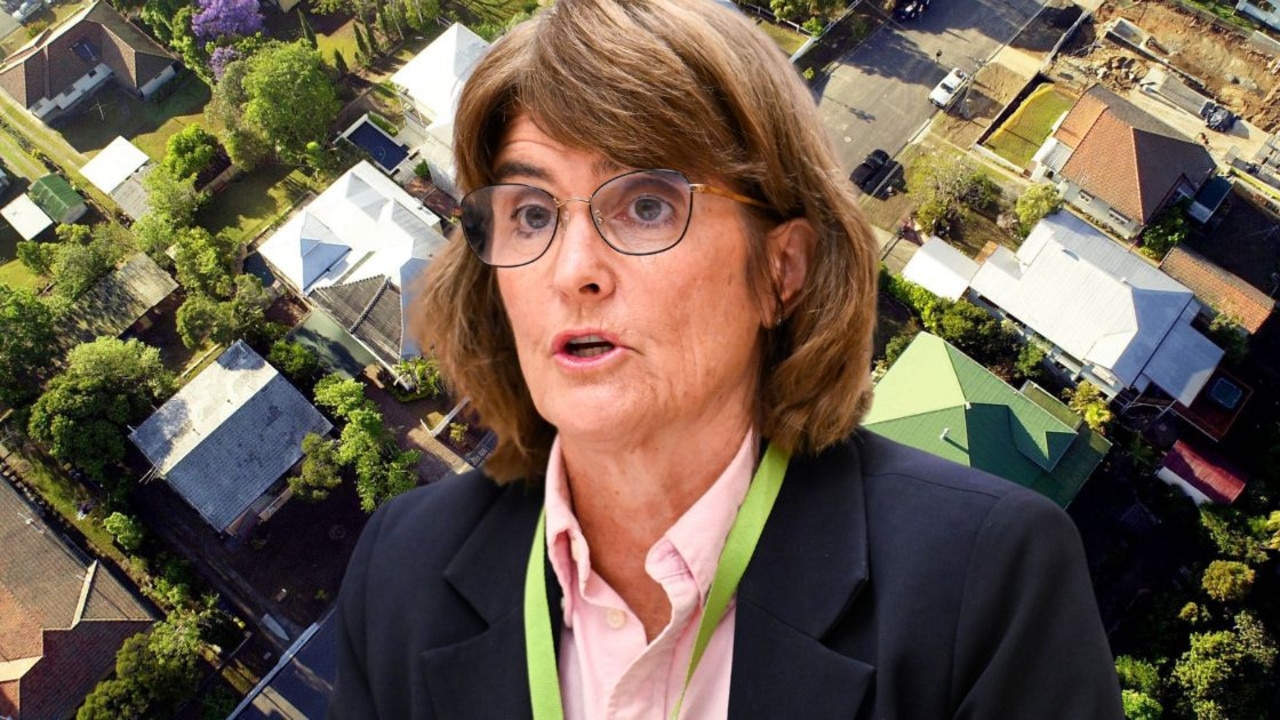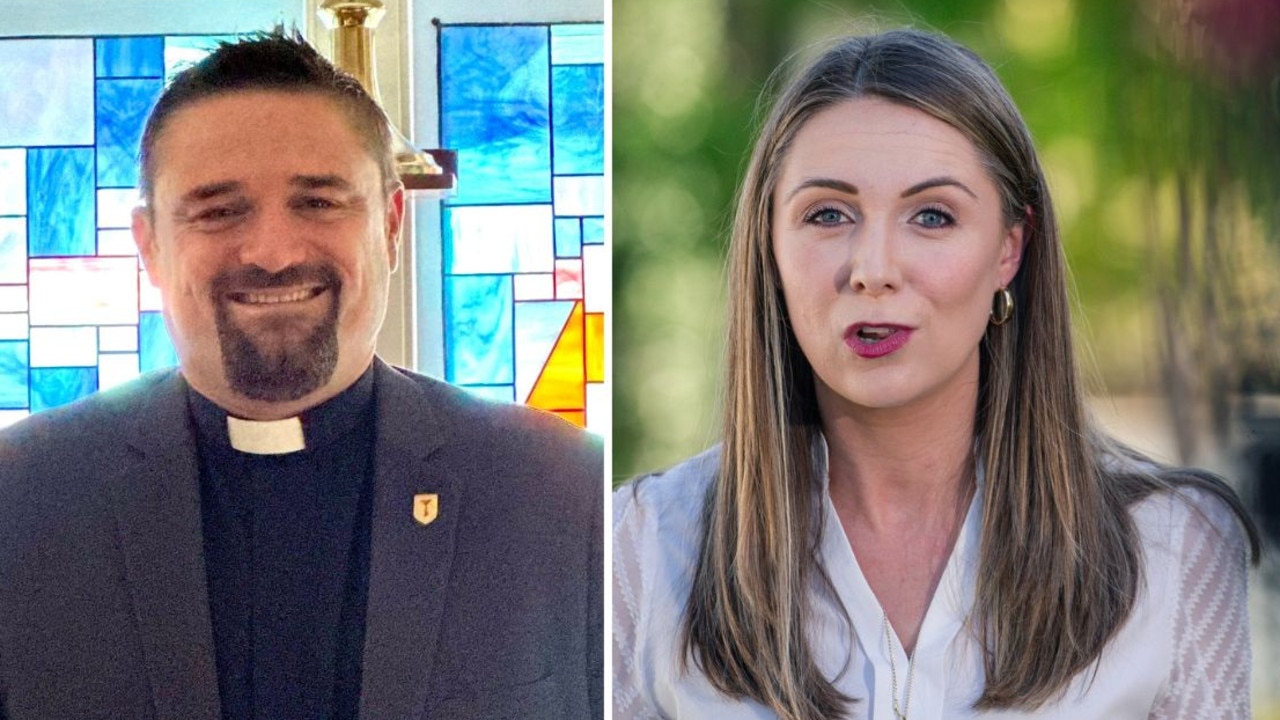Keys to the man for all seasons
Ink runs through his veins and the Gold Coast is in his soul, and now newsman Bob Gordon has won a rare City honour, writes Greg Stolz.

CM Insight
Don't miss out on the headlines from CM Insight. Followed categories will be added to My News.
AS A top newsman for 50 years, Bob Gordon has worked on some of the biggest stories of the era — the assassination of JFK, the moon landing, Cyclone Tracy’s destruction of Darwin, the dismissal of the Whitlam Government, the Fitzgerald Inquiry, and the 9/11 terror attacks.
He has worked everywhere from Brisbane to Beijing, but it’s the Gold Coast — the place where he “misspent” his youth and edited the city’s newspaper for 12 years — that holds Gordon’s heart.
Yesterday, Mayor Tom Tate presented Gordon with the Key to the City. It’s an honour usually bestowed on sports stars. Mick Fanning, Stephanie Gilmore, Grant Hackett, Sally Pearson, Sam Stosur, Adam Scott and Mick Doohan are among the Gold Coasters presented the coveted key over the years.
But Gordon, 77, was seen as a fitting recipient for the Gold Coast’s highest honour, given his significant contribution to the city that adopted him more than two decades ago.
Gordon hails from Gayndah in the North Burnett and was a boarder at Brisbane’s Nudgee College, but his family connections to the Coast go back long before it became known as the Glitter Strip.
His father Harry, who died in World War II, only four years after Gordon was born, was a surf lifesaver at Bilinga in the 1930s.
“There was nothing at Bilinga back then and like many young couples, Mum (Elaine) and Dad used to come and pitch a tent in the sandhills behind the surf club,” Gordon says.
As teenagers, Gordon, his brother Mick and their mates would hitchhike from Brisbane to the Coast to surf and party.
“You only had to be wearing your rugby jumper or surf club gear and people would stop to give you a lift,” he recalls.
“We’d surf from dawn until about 11am and then hit the Surfers Paradise beer garden and after that the Skyline Lounge (in the old Chevron Hotel).
“The legal drinking age was 21, but we’d always find someone who looked a couple of years older than us to buy us a jug of beer.”
After graduating from Nudgee in 1959, Gordon landed a journalism cadetship at Channel 9, which had just become the first television station to broadcast in Queensland. He was later sent to Lismore to help set up Channel 8, but decided to leave the bright lights of TV for the Northern Star newspaper. He’d worked as a copy boy for the racy Brisbane Truth newspaper and print journalism was his true love.
“It was the golden era of newspapers and I always wanted to be a print journalist,” says Gordon, who spoke fondly of the ink running through his veins in a parting column in 2009.
“It’s the journos and artists and their grizzly pride in their newspaper that I loved the most — the hard-drinking, smoking, fedora-on-the-back-of-the-head police reporters of my cadet days,” he wrote.
“I was in awe of them. So many of them would write like angels, sober or drunk, and dictate directly out of their notebooks to the copytakers, hitting deadlines with a splash in flawless prose.”
After several years in Lismore, Gordon returned to Brisbane to work on the Telegraph, where he became a sports editor. He was then hired by the Canberra Times as chief-of-staff, and spent 17 years in the national capital during the prime ministerships of Sir Robert Menzies, Harold Holt, John Gorton, William McMahon, Gough Whitlam, Malcolm Fraser and Bob Hawke.
In 1986, Gordon returned to Queensland as chief-of-staff of The Courier-Mail, where he had his greatest journalistic triumph.
Passing through Fortitude Valley, he couldn’t believe how “obviously decadent” the place had become, with hookers even flashing at passers-by from the “Sin Triangle” building at the corner of St Paul’s Tce and Brunswick St. Then-police minister Russ Hinze had famously declared there were no brothels or illegal casinos in Queensland, despite clear evidence to the contrary.
On a slow news day in December 1986, Gordon tapped young reporter Phil Dickie to find out who owned all these “non-brothels”.
Dickie’s front-page story on January 12, 1987, was the first in a series of articles that would shake the pillars of power in Queensland and help trigger the Fitzgerald Inquiry.
Gordon later became editor of The Sunday Mail, boosting its circulation to record levels.
In 1997, he was appointed editor of the Gold Coast Bulletin, where his skills as a sharp tabloid newspaperman could be seen splashed across many memorable front pages, from great local yarns such as the murder of an ex-KGB agent by “killer frogmen” to international stories including the death of Princess Diana, the 9/11 terror attacks and the Bali bombings.
He campaigned relentlessly for projects for the Coast, such as the Tugun bypass, the convention centre and Carrara Stadium.
The Bulletin’s biggest scoop during Gordon’s reign was another Walkley Award-winning piece exposing a secret developer-backed fund to bankroll pro-business council candidates, leading to a Crime and Corruption Commission inquiry.
Gordon persuaded developer Brian Ray to reveal the existence of the fund as they passed each other in their “budgie-smugglers” on Mermaid Beach one morning.
“It’s one of the many things I love about the Gold Coast,” Gordon says. “You’ll bump into some of the town’s biggest movers and shakers in their budgie-smugglers down on the beach, or in their T-shirts, boardshorts and thongs at the local surf club of a Friday or Saturday night.”
Since retiring from the “Bully” in 2009, Gordon has continued to make a hefty contribution to the Coast.
He was a founding director of the Gold Coast Suns AFL team, helped secure and run last year’s Commonwealth Games and has served as a board member on Griffith University’s Glycomics Institute.
Fittingly, Gordon was presented with the Key to the City at the Suns’ first home game of the season, at Carrara.
“An old Murdoch editor once told me that journalists are on the side of angels — and I’m still idealistic enough to believe that that’s true,” Gordon says.


